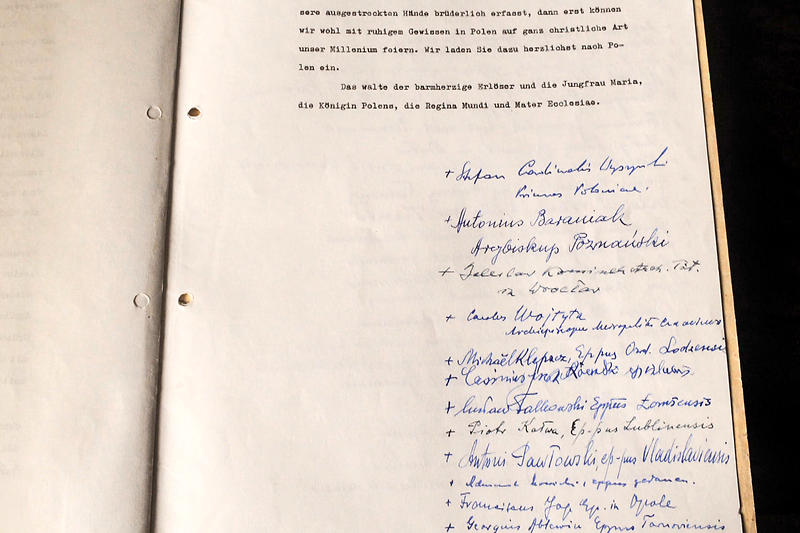
LIST BISKUPÓW
THE LETTER OF THE BISHOPS
Trailer
Twenty years after the Second World War Bishop Bolesław Kominek wrote a letter to the Catholic Church of the Federal Republic of Germany containing the now famous sentence: "We forgive and ask for forgiveness". What was meant as a gesture of Christian love and a call for dialogue caused outrage among the ruling communists in Poland: treason! At the same time however they sensed a chance to settle scores with Poland's Catholic Church, expecting to enjoy the broad support of the population. After all, more than six million Poles had lost their lives in the brutal war of annihilation conducted by fascist Germany.
Bishop Kominek's letter set off a chain of political reactions and events that ended with the recognition of the Oder-Neisse border, the genuflection of Willy Brandt, as well as the embrace of former Polish Prime Minister Tadeusz Mazowiecki and Chancellor Helmut Kohl in Krzyżewo in November 1989. KM
MP4 | doc. | Farbe / Colour
Mirosław Bork
Piotr Wojtowicz
Michał Muzyka
Ewa Różewicz
Marek Kuczyński
Mirosław Bork
New Format Sp. z o.o.
New Format Sp. z o.o.
Ida Bork-Buszkowska
Transportowców 10 C
02-858 Warsaw
Poland
ida.bork@bomedia.pl
+48 501 302 471

Miroslaw Bork - born in 1956 in Wejherowo, Poland. Director and producer. He first studied Polish philology in Gdańsk before graduating in film and television directing at the Silesian University of Katowice. He worked for many years in theatre and for Polish television and was for several years director at TVP broadcast and artistic director at the film festival in Gdynia.
SMRÓD (1987, doc)
KONSUL (1989)
CUDZE SZCZĘŚCIE (1998)
ZŁOTO CARÓW (2000, doc)
DWIE MIŁOŚCI (2002, TV)